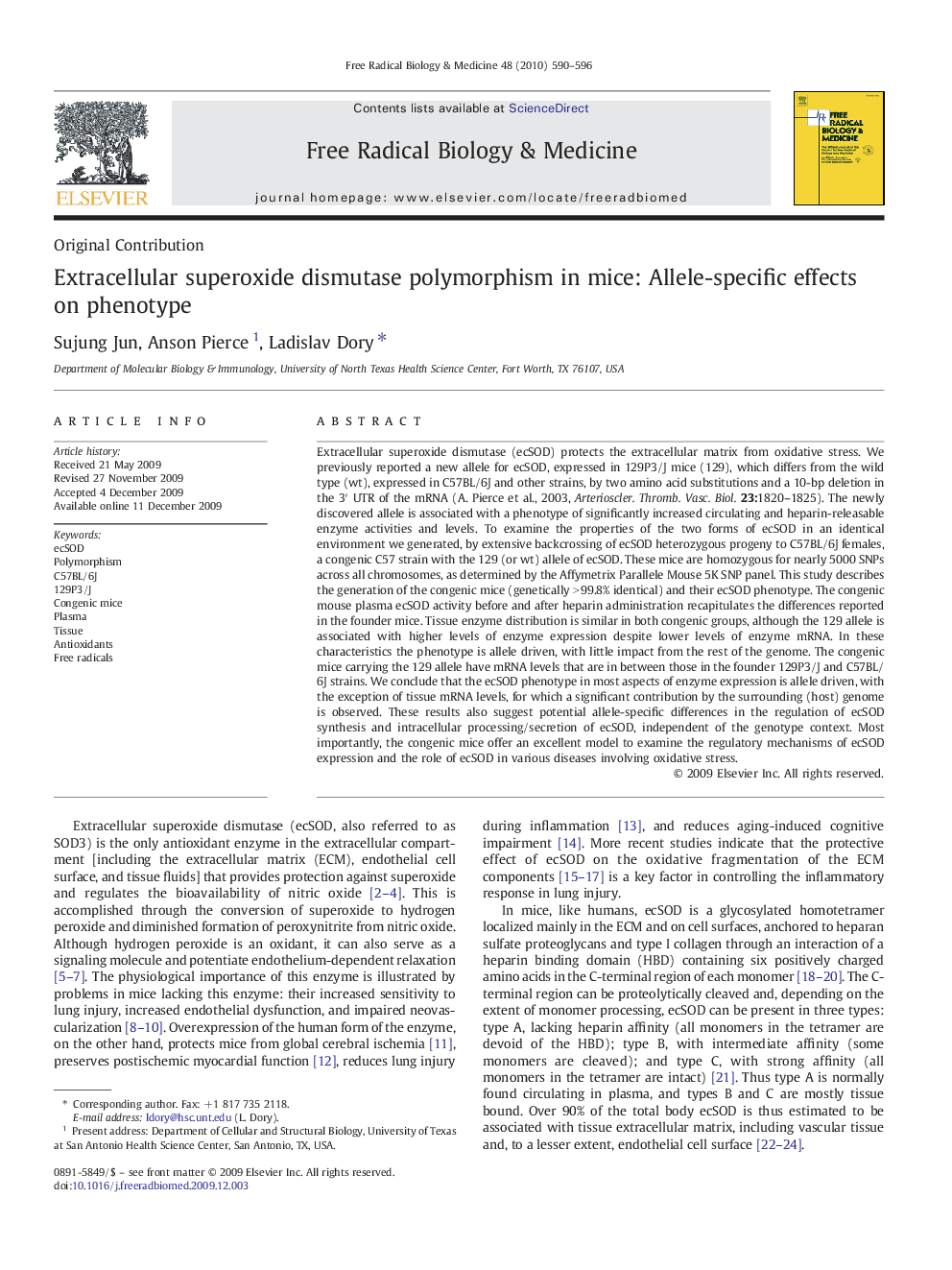| کد مقاله | کد نشریه | سال انتشار | مقاله انگلیسی | نسخه تمام متن |
|---|---|---|---|---|
| 1910277 | 1046762 | 2010 | 7 صفحه PDF | دانلود رایگان |

Extracellular superoxide dismutase (ecSOD) protects the extracellular matrix from oxidative stress. We previously reported a new allele for ecSOD, expressed in 129P3/J mice (129), which differs from the wild type (wt), expressed in C57BL/6J and other strains, by two amino acid substitutions and a 10-bp deletion in the 3′ UTR of the mRNA (A. Pierce et al., 2003, Arterioscler. Thromb. Vasc. Biol.23:1820–1825). The newly discovered allele is associated with a phenotype of significantly increased circulating and heparin-releasable enzyme activities and levels. To examine the properties of the two forms of ecSOD in an identical environment we generated, by extensive backcrossing of ecSOD heterozygous progeny to C57BL/6J females, a congenic C57 strain with the 129 (or wt) allele of ecSOD. These mice are homozygous for nearly 5000 SNPs across all chromosomes, as determined by the Affymetrix Parallele Mouse 5K SNP panel. This study describes the generation of the congenic mice (genetically > 99.8% identical) and their ecSOD phenotype. The congenic mouse plasma ecSOD activity before and after heparin administration recapitulates the differences reported in the founder mice. Tissue enzyme distribution is similar in both congenic groups, although the 129 allele is associated with higher levels of enzyme expression despite lower levels of enzyme mRNA. In these characteristics the phenotype is allele driven, with little impact from the rest of the genome. The congenic mice carrying the 129 allele have mRNA levels that are in between those in the founder 129P3/J and C57BL/6J strains. We conclude that the ecSOD phenotype in most aspects of enzyme expression is allele driven, with the exception of tissue mRNA levels, for which a significant contribution by the surrounding (host) genome is observed. These results also suggest potential allele-specific differences in the regulation of ecSOD synthesis and intracellular processing/secretion of ecSOD, independent of the genotype context. Most importantly, the congenic mice offer an excellent model to examine the regulatory mechanisms of ecSOD expression and the role of ecSOD in various diseases involving oxidative stress.
Journal: Free Radical Biology and Medicine - Volume 48, Issue 4, 15 February 2010, Pages 590–596